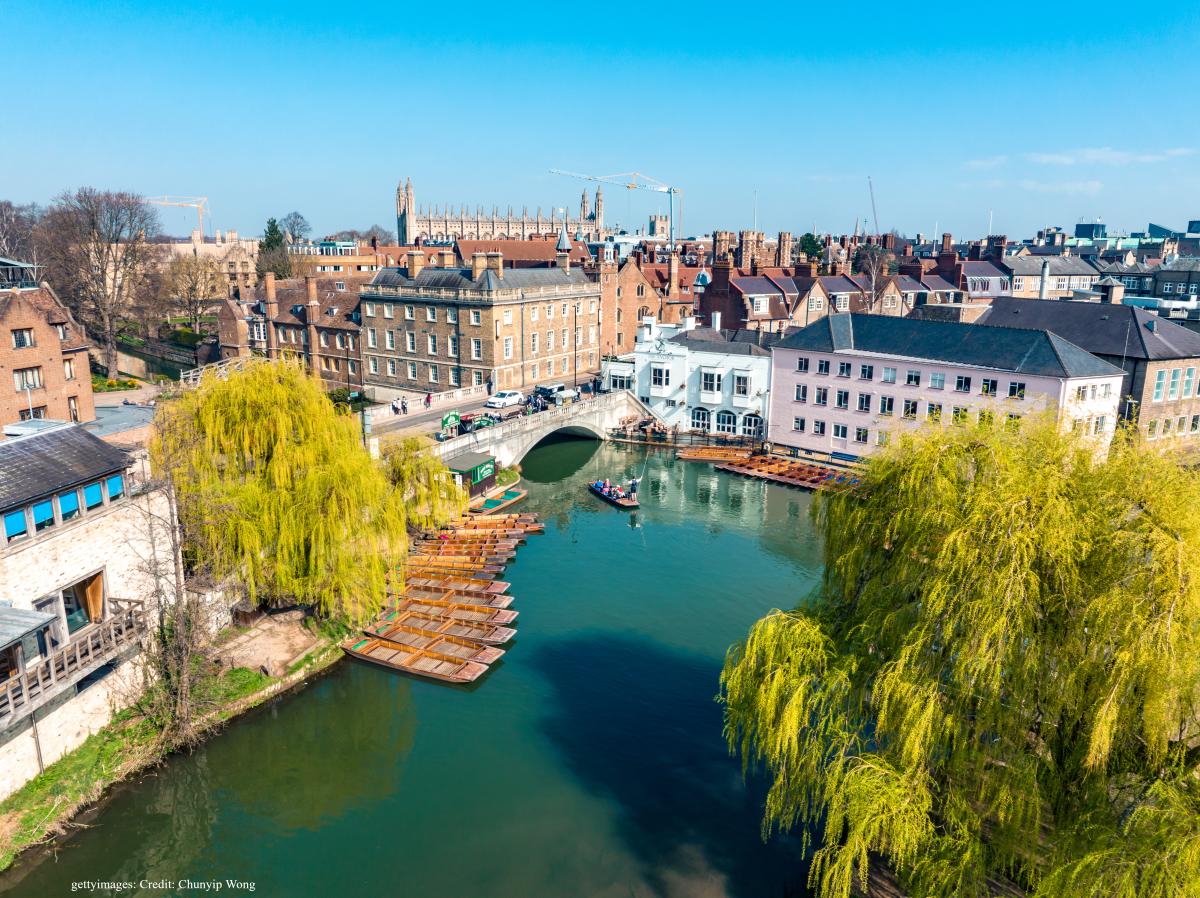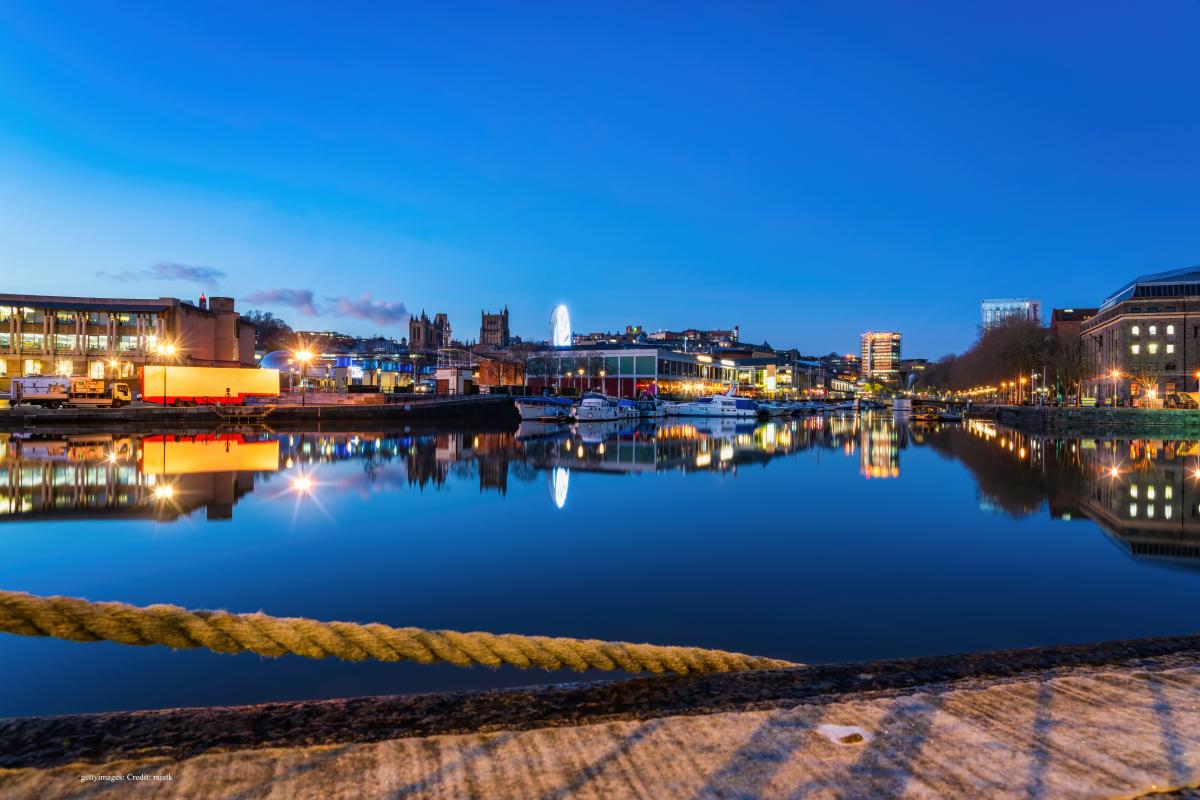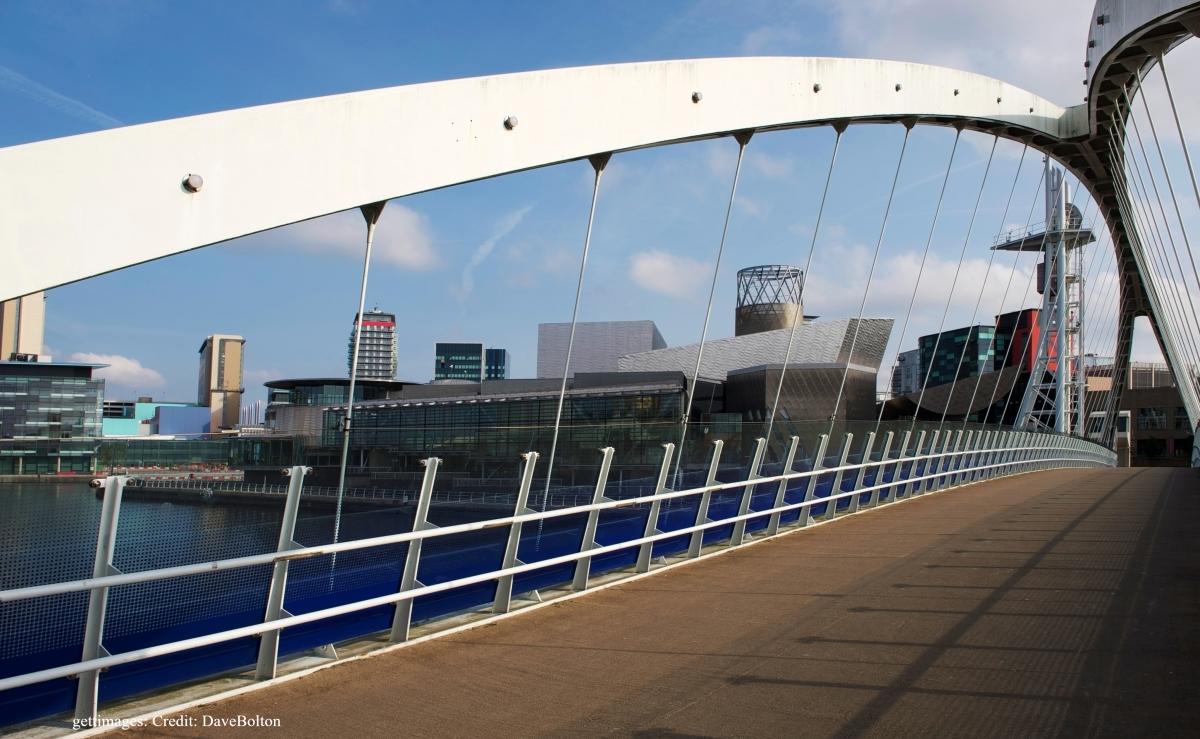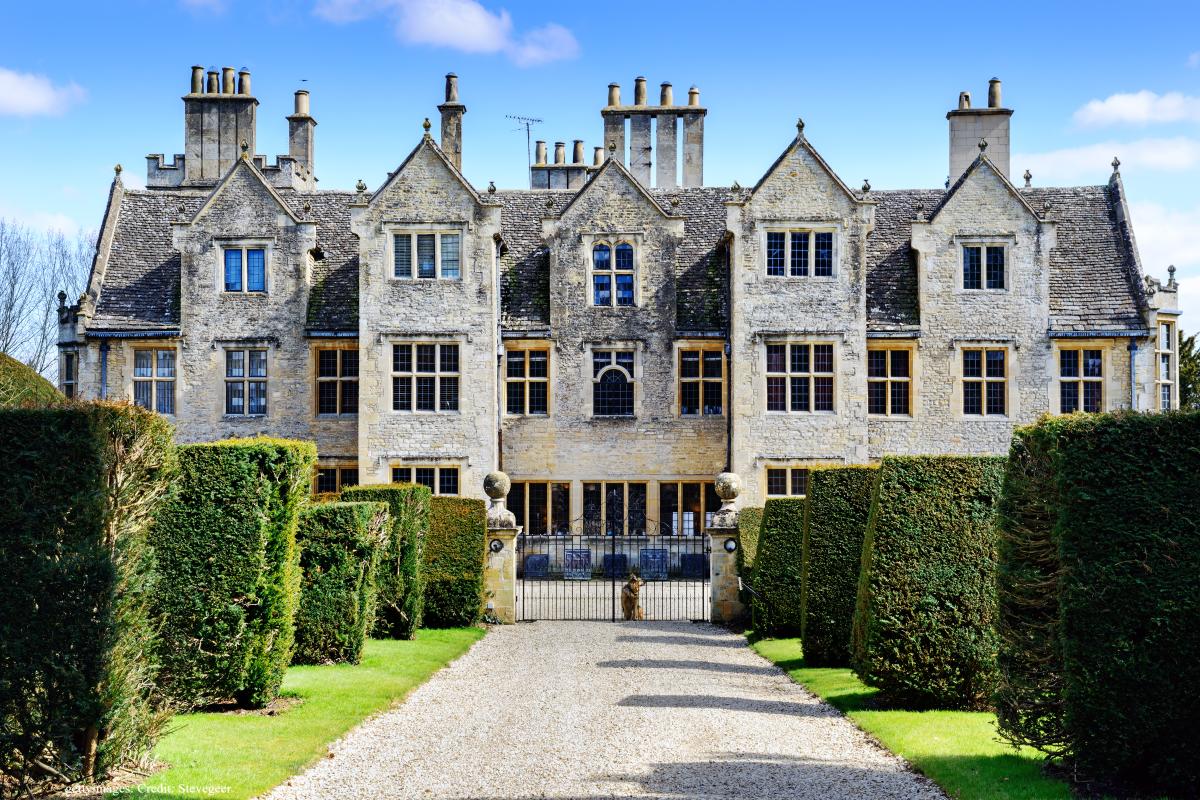When it comes to choosing a destination for UK-based meetings and events, London’s allure is hard to deny. After all, there is an aura of prestige about the place, a glow that’s only enhanced by its status as a global economic, cultural and transport hub. It’s a place of world-famous attractions and — from an organiser’s perspective — a city brimming with world-class venues. Given all of this, it’s easy to understand why the UK’s capital city consistently tops the list of European meeting destinations.
But as destination marketers and conference organisers in other parts of the UK know, there is life outside of London. From this perspective, professionals in the regions are uniquely placed to showcase all that their areas have to offer and, even better, to introduce newcomers to an entirely new part of the country. With this thought in mind, we explore the practical tactics that regional destinations can deploy to highlight the places they represent as the perfect destination for any UK-based meeting or event.
Show ‘Em What You Got: Finding Your USP
As tempting as it may be to jump in and start marketing your destination as a venue for meetings, this is a time when it pays to move at a slower pace, to stop and take stock of what you, as a place, have to offer as a meeting destination. Think: what differentiates you from London? What’s unique about the place you represent? Find that special something that gives your destination that added glow and amplify it.
Indeed, your Unique Selling Points (USPs) could be absolutely anything (or many things!). Because of this, the following questions shouldn’t be interpreted as a finite or exhaustive list; rather, they are intended as a sort of guide to help you view your destination and what it has to offer more objectively. With that in mind, consider these broad points:
...Do you have one-of-a-kind venues?
As a destination, you might be home to venues — think historic castles, country manors, sleek modern conference centres with high-tech amenities, etc. — that are truly unique. Whatever type of venue you’ve got, this is the time to emphasise it and, most importantly, the fact that it can only be found in your destination.
Example: Meet Cambridge
 Simpleview client Meet Cambridge is an outstanding example of a destination that truly celebrates its one-of-a-kind venues. In fact, as the venue-finding service for the world’s oldest university and its associated colleges, it plays up the city’s history to position itself as an attractive destination for meetings, conferences and events. With a ‘Why Cambridge’ page that sets out the city’s charms and achievements, a ‘10 Reasons to Use Meet Cambridge’ page and case studies of previously held successful events, the team at Meet Cambridge lay out their proposition and successes clearly for event organisers to view and consider. In addition to its historical heritage, note that Meet Cambridge also uses these pages to highlight both its local arts and culture as well as its proximity to London as a selling point.
Simpleview client Meet Cambridge is an outstanding example of a destination that truly celebrates its one-of-a-kind venues. In fact, as the venue-finding service for the world’s oldest university and its associated colleges, it plays up the city’s history to position itself as an attractive destination for meetings, conferences and events. With a ‘Why Cambridge’ page that sets out the city’s charms and achievements, a ‘10 Reasons to Use Meet Cambridge’ page and case studies of previously held successful events, the team at Meet Cambridge lay out their proposition and successes clearly for event organisers to view and consider. In addition to its historical heritage, note that Meet Cambridge also uses these pages to highlight both its local arts and culture as well as its proximity to London as a selling point.
Or can you offer…
…a cost-effective experience?
There’s no two-ways about it: London is expensive. For a destination outside of the capital, this is a golden opportunity: it offers you the chance to emphasise the cost savings your destination can offer, all while impressing with high levels of service.
…an insight into local culture?
We’re talking about historical heritage, traditional cuisine, crafts, activities and ways of life that are exclusive solely to your region. Think of this cultural element as an enticing enhancement to what your destination already has to offer as a venue for meetings.
…convenient transport links and excellent connectivity?
London’s not the only city in the UK that offers great connectivity. If this point applies to your destination, emphasise the ease with which it can be accessed via airport, train, or motorway. Because there will be some for whom London always holds sway — if it’s applicable to your destination — highlight its proximity and transport links to the capital. On this point, provide detailed information for event organisers, including transport options and even travel itineraries. Position your destination as a place that’s easy to reach for both domestic and international attendees.
Example: Meet Bristol & Bath
 In our second example, we see how Meet Bristol & Bath — the official convention bureau for Bristol, Bath, and the surrounding areas — really emphasises its transport links as part of its wider objective is to promote the region as a first-class business event and incentive travel destination. Playing to their advantages as a place, the convention bureau has a specific page outlining the regional economic and academic strengths that make Bristol and Bath a great choice for any event.
In our second example, we see how Meet Bristol & Bath — the official convention bureau for Bristol, Bath, and the surrounding areas — really emphasises its transport links as part of its wider objective is to promote the region as a first-class business event and incentive travel destination. Playing to their advantages as a place, the convention bureau has a specific page outlining the regional economic and academic strengths that make Bristol and Bath a great choice for any event.
Positioning themselves as a hotbed of innovation — and boasting a busy regional airport, two mainline train stations and strong road links — the city is well-connected, easy to get to and marketed to appeal to event organisers who want to do something differently. The organisation also places a great emphasis on the uniqueness of its venues and — if you were with us this past September at our Simpleview EMEA Summit in Bristol — then you’ll know exactly what we mean.
…great green credentials?
If you have them, it’s also wise to take an honest look at your sustainability credentials. By carefully promoting your eco-friendly venues, your carbon-offset programmes, or your community-driven initiatives, you appeal to organisations prioritising environmental and social responsibility. If it’s relevant, you may want to highlight the fact that you, as a destination, are linked up with your local community and can offer visiting delegates the chance to participate in volunteering opportunities or projects that support the local community during their stay.
The Many Ways of Marketing Your USP
 Once you’ve honed in on your USP — whatever it may be — it’s time to set about marketing it in a targeted way. As a destination marketer, you know your audience best and, likewise, the channels and mediums they use most. Depending on where your audience is, this might mean creating specific social media or email marketing campaigns built solely around your chosen USP or perhaps placing carefully-written copy in the publications and websites most read or visited by your target audience.
Once you’ve honed in on your USP — whatever it may be — it’s time to set about marketing it in a targeted way. As a destination marketer, you know your audience best and, likewise, the channels and mediums they use most. Depending on where your audience is, this might mean creating specific social media or email marketing campaigns built solely around your chosen USP or perhaps placing carefully-written copy in the publications and websites most read or visited by your target audience.
Along with this, you’ll want to ensure that you build and maintain a strong online presence for your destination, an exercise that should see your creativity as a marketer come to the fore; virtual venue tours, interactive maps, engaging visuals and video testimonials are excellent ways to build excitement around what your destination has to offer. To that end, don’t be afraid to leverage the reach of influencers and organic word-of-mouth marketing to create buzz around your USP. But don’t forget the basics: after all, the goal is to ensure that those interested in what your destination has to offer can easily book with you via a dedicated website or platform.
Example: Meet in Manchester

‘Where great minds meet’ is the strapline used by Meet in Manchester. As our third and final example, we can see how — from the moment visitors land on its home page — the city’s convention bureau uses striking video and imagery to highlight the Greater Manchester region as a place of creativity and innovation, a place that is continuously pushing boundaries across any number of fronts — from science and e-commerce to food, arts and culture. In addition to positioning the region as a place at the forefront of innovation, its ‘Why Manchester’ page offers a succinct and practical insight into what the city offers meeting and event planners, from easy access for both national and international delegates and a range of venues that can accommodate events of all sizes.
But panning out a bit wider, this is a great time to tap into your wider network; indeed, you likely already have strong networks with local stakeholders — from hoteliers and restaurateurs to transportation companies and government authorities — so it makes sense to use these as forums for marketing event packages that celebrate your destination’s appeal as a meeting venue. On this point, you may wish to consider offering incentives for meeting and event organisers — perks like discounted rates, free site inspections/FAM trips, venue upgrades, or added-value benefits for large groups — to these packages with a view to showcasing the strengths of your location. Finally, as a further enticement, explore any local or national government grants that support regional tourism and/or the MICE sector and — taking it one step further — highlight these financial incentives to attract meeting planners and delegates to your destination.
This all goes to show that — whatever sets you apart — with the right tactics, marketers can propel the destination they represent right into the limelight, ensuring that it is the perfect choice — and the perfect place — for any UK-based meeting.



